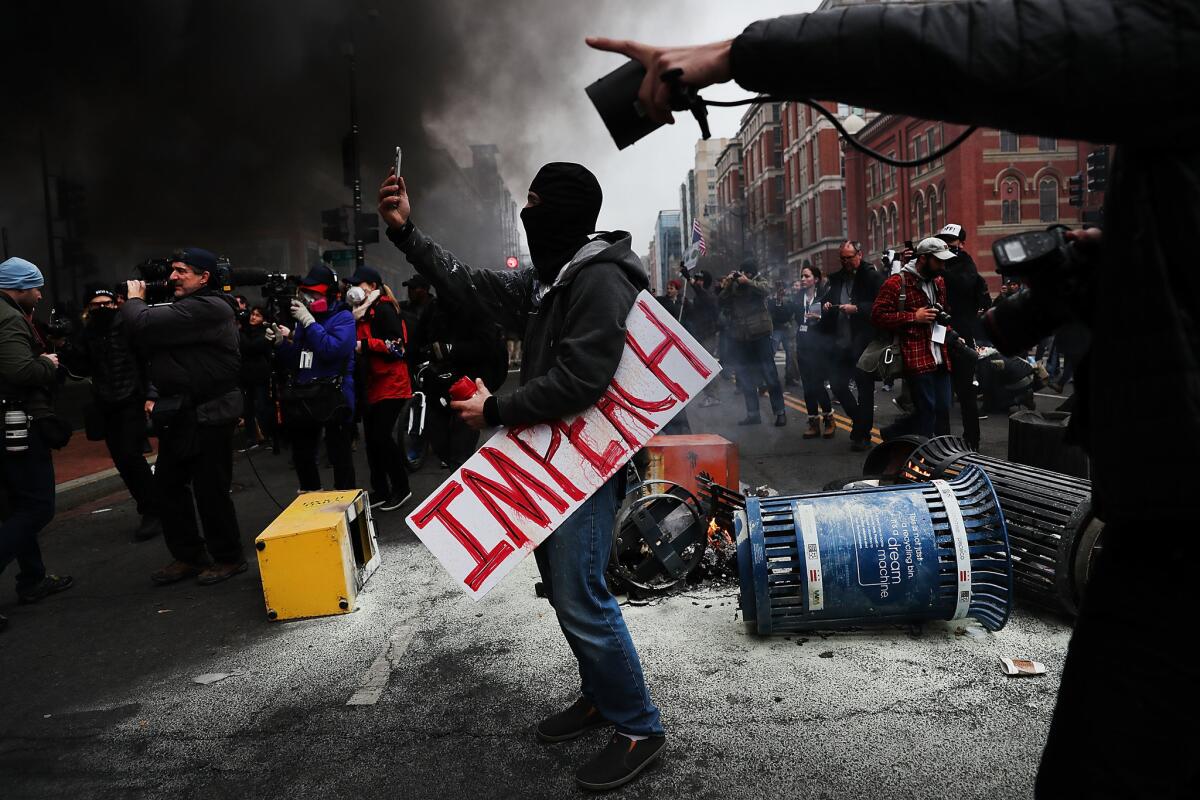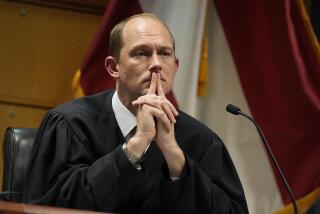Federal prosecutors dismiss all remaining Inauguration Day rioting cases

Federal prosecutors on Friday said they would dismiss rioting charges against all remaining defendants arrested after destructive Inauguration Day protests, bringing to a close a controversial case that led to allegations of government overreach.
Prosecutors began filing paperwork Friday afternoon to formally drop the cases against 38 people who had been awaiting trial.
The vandalism of downtown businesses on the day President Trump was sworn in stretched over 16 blocks as part of a disturbance called DisruptJ20. Members of a large group of protesters set small fires and used bricks and crowbars to smash storefronts.
In all, 234 people were arrested and charged with rioting. Of them, 21 defendants pleaded guilty before trial. But prosecutors had been unable to secure convictions at trial against others in the group.
Defense attorneys have long contended that prosecutors went too far in pursuing cases against more than 200 people. They argued that their clients were not rioting, but were swept up in the arrests while peacefully protesting.
After the first six defendants to go to trial were acquitted, prosecutors dropped charges against more than 150 others, saying they were unable to prove those people planned or participated in protests with the aim of causing damage. Charges against several additional defendants were dropped after D.C. Superior Court Judge Robert E. Morin found that the U.S. Attorney’s office failed to turn over some video evidence to the defense.
At a second trial involving another handful of defendants, jurors either acquitted the defendants or were unable to reach a unanimous verdict. Over time, prosecutors dismissed more of the cases.
Prosecutors had contended that the rioters blended in with protesters by using “black-bloc” tactics, wearing dark clothes and hiding their faces with masks and goggles so it would be harder for authorities to identify them while they participated in violence.
Detectives and prosecutors relied on videos from police officers’ body cameras, cellphones and security cameras in hopes of linking the defendants to the riots.
Following the two trials, jurors told reporters they were unable to unanimously reach guilty verdicts because they weren’t convinced the defendants participated in vandalism. In some instances, prosecutors showed video they said showed some of those arrested smashing windows. But jurors said the images were not clear enough to know for sure.
During the trials, prosecutors also were criticized over the handling of key evidence, undercover video supplied to them by Project Veritas, a conservative activist group that uses secret recordings to target the mainstream news media and left-leaning groups.
Prosecutors said Veritas representatives secretly attended and recorded a planning meeting leading up to the riots.
Two judges, including Morin, determined the lead prosecutor on the cases, Jennifer Kerkhoff, failed to either supply all of the various Veritas videos to defense attorneys before trial, or edited the videos and failed to disclose all of the edits to attorneys. Kerkhoff has filed a motion with Morin asking the judge to reconsider his findings against her.
Alexander writes for the Washington Post.
More to Read
Start your day right
Sign up for Essential California for news, features and recommendations from the L.A. Times and beyond in your inbox six days a week.
You may occasionally receive promotional content from the Los Angeles Times.






